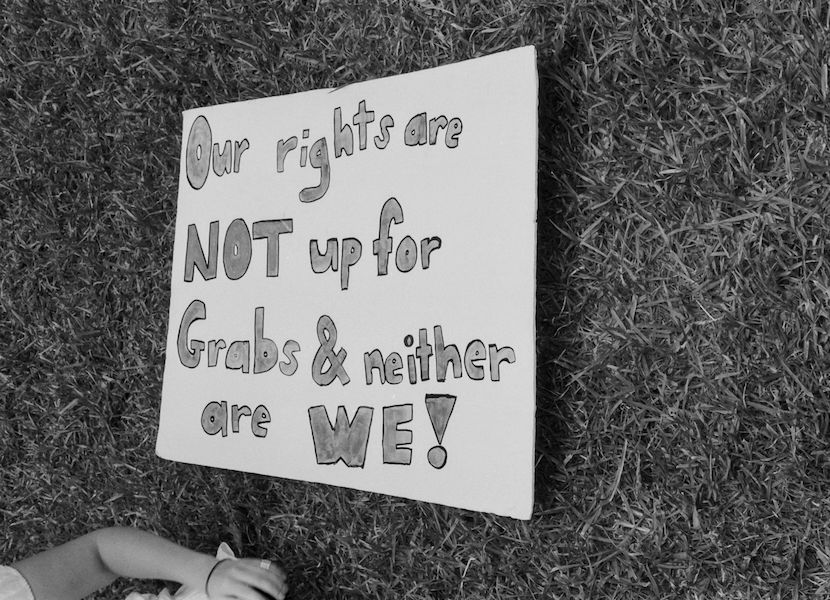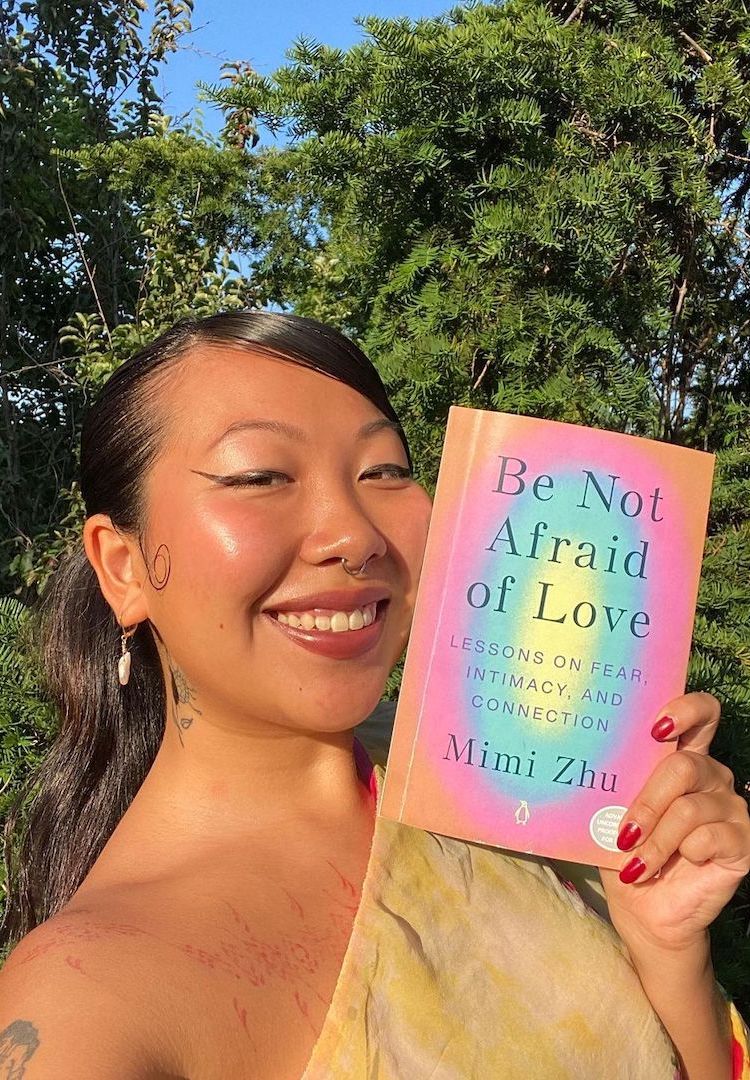I’m a survivor of domestic violence, this is my story
PHOTOGRAPHY BY KITTY CALLAGHAN
WORDS BY JANE SMITH
One woman’s story of surviving domestic abuse and rebuilding her life in the aftermath.
Domestic and family violence can be hard to recognise – it can take many forms beyond physical violence, including verbal, social, financial, psychological, religious and sexual abuse. Survivors may feel ashamed of their experience or not even realise they are experiencing family violence. It is much more common than you might think, yet it’s rarely talked about. Here an Australian PR professional – and someone we work with closely – describes her experience, in the hope that it might help others to recognise family violence and seek support. If you need support, please contact 1800RESPECT.
You will meet a man one night, at a pub amongst friends, and you’ll wonder how you managed to find someone so perfect hidden in the kaleidoscope of social circles you both inhabit.
His broad shoulders, dimpled easy smile, soft, strong hands and confidence feel like home immediately, so much so, that you imagine upon meeting him that this is the perfect man – “the guy”.
After hours of talking side by side on steps overlooking the harbour, you share your life story, he shares his, and between you your dreams and aspirations intermingle so you are sure this is real, there is a connection.
Passion, tenderness, carefully planned dates and weekends pass in a dreamy blur. Work is busy, you have less time for friends, but you have finally found him – a companion, lover and caretaker. You are ecstatic.
In the coming weeks, you forgo your prized but often lonely independence to share dinners and nights in with someone who worships you fondly. How did I get so lucky?
The delirium of these first months is pierced by moments of discomfort that you will manage with your usual rational, no-nonsense approach.
An offhand insult – it was a joke! Where’s your sense of humour? You’re not one of “those girls”. You laugh it off.
The veil lifts and falls, because you choose to see the good in people. You observe contradictions. A spartan home despite his glittering career, his flourishing consulting business but his seemingly endless free time and lack of money, his extended web of friends who are family yet kept at arm’s length.
Inconsistencies represent no more than the usual imperfections in all of us. Sharing these feels like a place you belong together, helping each other.
After only a couple of months, you’ll move in because it makes sense. You’re never apart anyway. Then slowly, as if an invisible thread is pulled, the cocoon around you begins to unravel.
Secrets you’ve shared are weaponised and revealed to you as fresh evidence of your deceit. You don’t remember? You never said those things? Then you’re a liar, untrustworthy, unbelievable. If not you must be crazy, forgetful, broken and unworthy of love.
These episodic fights are charged, him screaming, you crying in frustration. You believe if you can reason with him, he will calm down and listen to you so you can set him straight. He is tenacious with extended monologues that wear you down until you’re exhausted.
You agree, partly so that you can go to bed. Partly because you start to believe you must be wrong. You should try harder to be a better communicator. A better partner.
People will ask – you will ask yourself – how could you stay? But the control, abuse and violence aren’t constant. It swings from intoxicating romance into more frequent and intense outbursts, only repaired by a new cycle of reconciliation, repair. It never occurs to you that these two states are linked because so much is explained away.
It starts with fingers slammed in drawers and doors or being pushed out of the way, because you’re always in the way and you need to learn to get out of his way when he’s like that.
Holes in the wall. See how he tried not to hurt me? It’s just a wall. It can be fixed. When he gets a job, when I spend less time at work, when we have more money, things will get better. It won’t happen again, it’s just too much pressure some times.
When he leaves bruises from grabbing and shaking you, he was just trying to get you to stop crying. He nearly pushes you through a glass door. He was just trying to stop you from running away. You could have hurt yourself.
He tells you you’re unstable, and maybe you should kill yourself, you’ll never be happy. But no, wait he never said that? He says he didn’t say that. You must be remembering wrong. The fact you would think that means you must really be crazy.
You start writing yourself notes on your phone, barely able to trust your own memory. You record dates, times, events, phrases. This is the second smartest thing you do.
No matter what you tell yourself, your body keeps the score. It starts with flinching when he touches you, avoiding bed with insomnia. Eventually, an autoimmune illness screams for attention, where you will not. Some days you shake uncontrollably with tremors and nervous ticks.
You are grateful he stays with you, looks after you when you’re so frail. Not many people would stick around, you tell yourself. It doesn’t occur to you that he is literally making you sick.
One day, a police officer called by your neighbours takes you aside and says to you, “This will never end. One day he is going to kill you” and you laugh because it seems so surreal, so insane he would even say that to you. You’re not one of “those” victims.
They photograph the damage around the house and when you don’t turn up to court, because nobody ever calls you to tell you about the court date, the charges and restraining order are automatically dropped.
It’s only two weeks until the next time. This time he forces you to do things you are sure you can never speak about.
Fear becomes the undertone to your otherwise mundane, seemingly enviable home life. It is an easy way for him to control you. You learn to avoid conflict by whatever means necessary – when you sense something will happen it inevitably does – so you start sleeping in your car on the street, going on work trips, staying at work late, staying with friends when you can sense he is escalating.
You’re ashamed, so you tell veiled truths to concerned friends and family, to your doctor. You fear they will agree that maybe it is you that’s the problem. And if not, then how could you let this happen? Keep happening? What’s wrong with you?
You will remember this later like a feverish nightmare, filled with negotiations, reprimands and sacrifices you make to keep him satiated, soothed, not screaming. Small gestures of kindness prove – see he does love me! We’re okay – it’s just a really tough time. We’re doing the best we can.
One night, when you’re thrown across a room and knocked unconscious, you open your eyes and look across the cold tiled floor. This is not someone who loves you.
Once you accept your life depends on it, you will reach out, tentatively, to one person, then another with complete honesty, knowing that the shame you experience telling them will stop you from ever going back. This is not someone who ever loved you.
One of the first people you tell is your psychologist, who points out you could have broken your neck and he didn’t check on you. You could have died.
This is not how you deserve to be treated.
Even with nowhere to go, nothing but two suitcases and your pets, from here it gets so much better.
Today I know: you can survive with no home, no money, and no car. You cannot survive without hope, professional support and a safety plan.
You will be believed and vindicated by an imperfect judicial system with flawed legislation, woeful punishment for perpetrators, and minimal support for victims. It is worth the six hours of statements and revisiting the hell you’ve been through because that statement will be on the record for the next victim to be believed even if you are not.
As a cis, white, educated professional I am privileged compared to many others, yet it’s still incredibly hard to navigate the system. Unbearable with the effects of trauma coursing through you. Support and believe survivors. Nobody chooses abuse, and navigating the nightmare that follows it is not for “attention”. It’s sheer hell.
You’ll learn that institutions are only as good as the people in them. Keep pushing until you find the right people, and never give up if you’re not getting what you need. The officer in charge of the investigation, the psychologist, GP, and a social worker through the Women’s Domestic Violence Court Advocacy Service (WDVCAS) are the core group I relied on.
Ignore people who refuse to help. Like the first police officer I spoke to originally who told me, “DV is very hard to prove, rather than get your hopes up you should know very few people are actually charged. And it’s a hard process to go through, takes a long time. Probably not worth doing.” That was from a female officer, by the way.
Sometimes help comes from unexpected places. A removalist who accommodates your urgent request for help to get your clothes and keepsakes. He keeps them in storage for you whilst you try to find a home. Other survivors who give you secondhand furniture to set up a home from scratch.
A real estate agent helps you break a lease when your abuser is given your new address only months later and you are told it is not safe to return home.
You will learn that survivors of domestic violence with trauma make terrible witnesses and that to the courts, evidence is everything when it comes to “beyond a reasonable doubt”.
Keep notes, take photos, use the safety of a doctor’s office to report (they can be witnesses and give evidence in court later if you don’t feel safe to go to the police in the first instance) and if it’s safe to, use services like 1800 RESPECT to get help making a safe exit plan.
Nobody can tell you what to do, you must ultimately decide what is safest and best for you. You are the expert when it comes to how your abuser thinks. Remember you are in control now, and this includes assembling your own support team and any resources you can from what is available to you. Social workers can help to connect you with financial, housing and psychological support services.
Uphold your privacy and security, and trust sparingly. You will be vulnerable, and you are in real danger, especially when you first leave. Don’t let anyone downplay or jeopardise your safety.
This is real and it is temporary. You won’t have time to fall apart whilst you’re surviving this period, so when all the feelings finally come pouring out be accepting of the entirety of your experience. For this reason, you will come to relish solitude and the company of animals over people.
The hypervigilance, flashbacks and night terrors will stop eventually, even if you don’t forget what caused them. The triggers and subconscious memories will become a part of your life. But the instincts you have honed through this experience will become your superpower.
And finally, you should know that you can give yourself those slow, loving Sunday mornings with breakfast in bed.
You are stronger than you could have ever imagined.
If you suspect that you or someone you know might be experiencing family violence, contact 1800RESPECT for 24-hour support. In an emergency situation always call 000 first.










